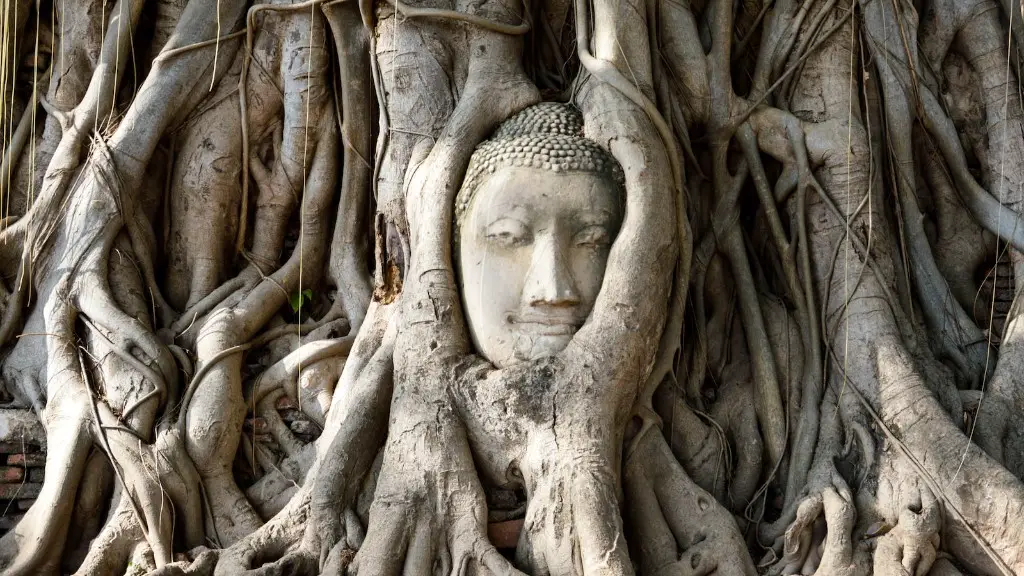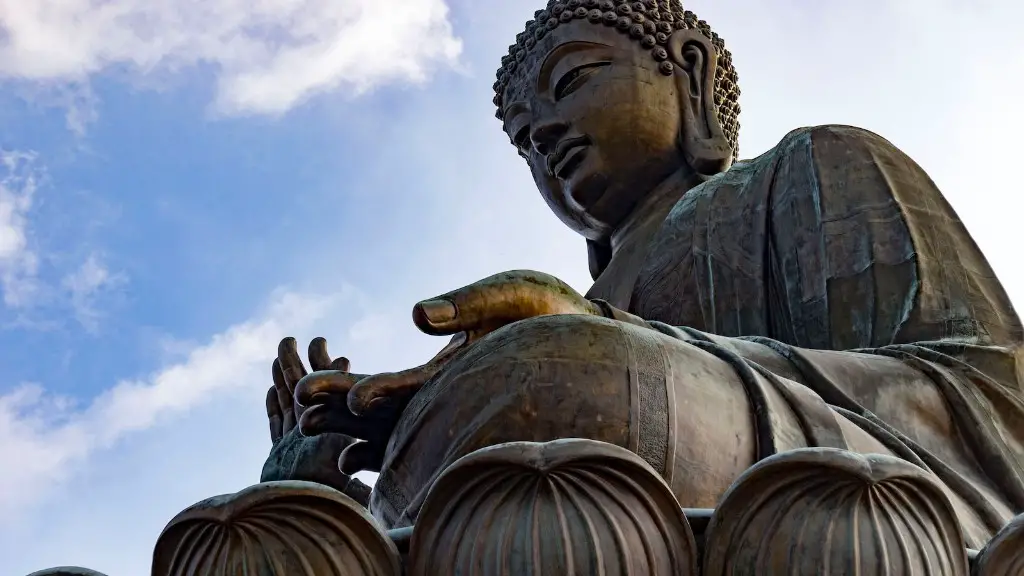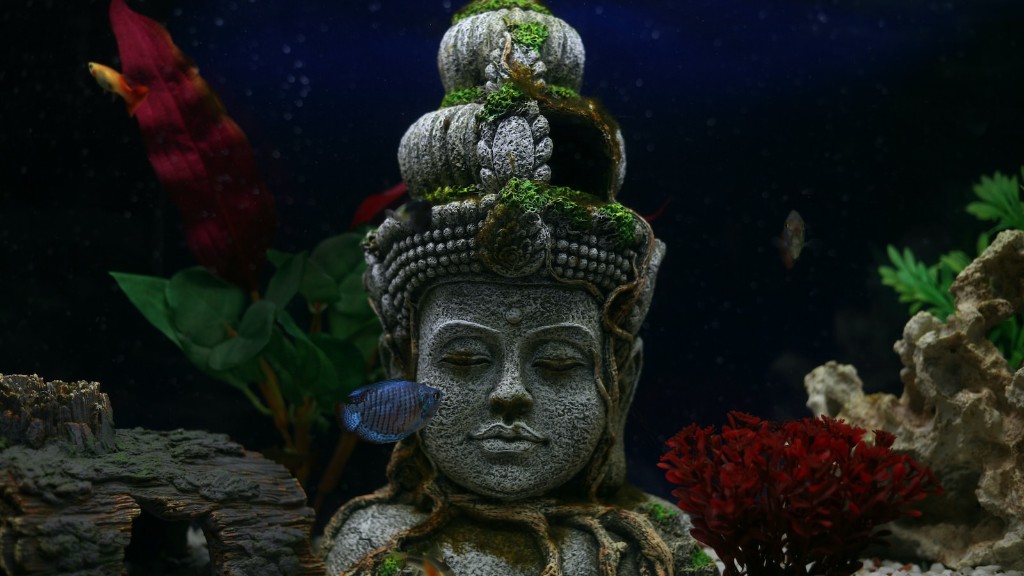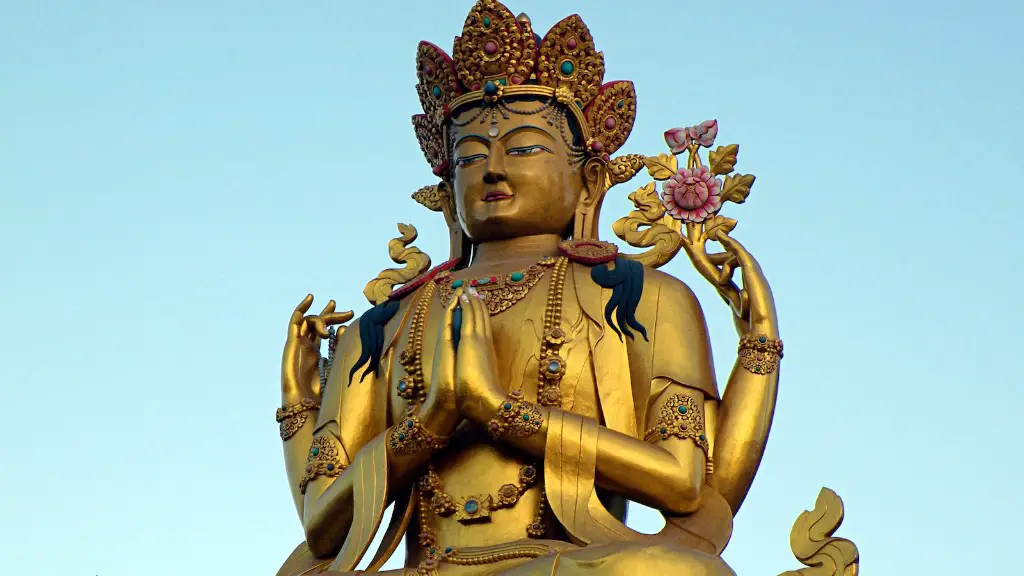Buddhism is a religion and philosophy founded in India by Siddhartha Gautama, who is commonly known as the Buddha. The main point of Buddhism is to find the path to nirvana, or freedom from suffering and the cycle of rebirth.
The main point of Buddhism is the Four Noble Truths, which are that life is suffering, that suffering is caused by craving and attachment, that suffering can be ended by letting go of craving and attachment, and that the path to letting go of craving and attachment is the Noble Eightfold Path.
What is the main purpose of Buddhism?
Nirvana is the goal of Buddhism and is believed to be attainable only with the elimination of all greed, hatred, and ignorance within a person. Nirvana signifies the end of the cycle of death and rebirth.
The Five Precepts are a set of guidelines for living a moral and ethical life. The precepts are: refrain from taking life, refrain from taking what is not given, refrain from the misuse of the senses, refrain from wrong speech, and refrain from intoxicants that cloud the mind.
What are the 3 main beliefs of Buddhism
Buddhism is a religion that is based on the teachings of Siddhartha Gautama. The main principles of this belief system are karma, rebirth, and impermanence.
The Buddha came to understand the Four Noble Truths during his meditation under the bodhi tree. The Four Noble Truths are the truth of suffering, the truth of the origin of suffering, the truth of the cessation of suffering, and the truth of the path to the cessation of suffering. These Four Noble Truths are the foundation of the Buddhist teachings and provide a clear understanding of the human condition and the path to liberation from suffering.
Is Buddhism a faith or religion?
Buddhism is a religion that originated in India in the 6th century BC. It is a non-theistic religion, which means that it does not believe in a creator God, unlike theistic religions such as Christianity. Buddhism was founded by Siddhartha Gautama (also known as Buddha), who, according to legend, was once a Hindu prince.
The first precept in Buddhism is a prohibition against killing. This includes both humans and animals. Scholars have interpreted the Buddhist texts about the precepts as an opposition to capital punishment, suicide, abortion, and euthanasia.
What is Buddhism vs Christianity?
There are inherent and fundamental differences between Buddhism and Christianity. Christianity is at its core monotheistic and relies on a God as a Creator, while Buddhism is generally non-theistic and rejects the notion of a Creator God. Christianity provides divine values for the world, while Buddhism does not.
According to Buddhist teachings, life and death are part of a continuum. Consciousness (the spirit) continues after death and may be reborn. Death can be an opportunity for liberation from the cycle of life, death and rebirth.
Why do Buddhists not believe in god
Atheism in Buddhism, Jainism
Buddhism is a tradition focused on spiritual liberation, but it is not a theistic religion. The Buddha himself rejected the idea of a creator god, and Buddhist philosophers have argued that belief in an eternal god is a distraction for humans seeking enlightenment.
In Buddhism, there is no concept of punishment or reward and there is no divine being who decides who goes to hell or heaven. There is merely the illusory results of our thought, words and deeds, which we call karma.
Can you believe in god as a Buddhist?
There is no one specific answer to this question as Buddhists can have a variety of beliefs on the matter. Some Buddhists may believe in a specific god or gods that can help or hinder people on their path to enlightenment, while others may not believe in any deities at all. Ultimately, it is up to each individual Buddhist to decide what they believe on this topic.
The five moral precepts are basic guidelines for living a good life according to Buddhism. They are:
1. Do not kill living things.
2. Do not take what is not given.
3. Do not engage in sexual misconduct.
4. Do not lie.
5. Do not use drugs or alcohol.
These precepts are meant to help us avoid harming others and ourselves, and to live a life of honesty, compassion, and self-control.
What is sin in Buddhism
Buddhism does not believe in any personal God or any Supreme Being, and therefore theword “pāpa, apuñña” or sin stands for the evil elements that defile the mind and have a deadening effect on the psyche making it difficult for its upliftment.
The Four Noble Truths are the cornerstone of Buddhist teaching. They are:
1. Life is suffering
2. The cause of suffering is craving
3. The end of suffering comes with an end to craving
4. There is a path which leads one away from craving and suffering
Buddha attained enlightenment when he realized these truths. Since then, they have been guiding principles for Buddhists on the path to end suffering and attain Nirvana.
Do Buddhists get along with Christians?
Christians and Buddhists have very different beliefs. Christians preach of one God, creation and salvation, while Buddhists believe in reincarnation, enlightenment and nirvana. These different beliefs mean that the two groups are not compatible.
The book “Buddha and Jesus” by Marcus Borg raises the interesting question of how Jesus could have teachings that are so similar to Buddha’s when he lived 500 years later and 3,000 miles away. Borg said that some historians believe that Buddhist principles had spread to the Roman Empire by the time of Jesus. This is an intriguing idea that warrants further exploration.
Was Jesus influenced by Buddhism
There is no reliable evidence to suggest that Buddhism and Jesus had any contact with each other, despite the fact that modern parallels have been drawn between their teachings. These comparisons emerged after missionary contacts in the 19th century and should not be taken as fact.
For Buddhists, karma is the sum of a person’s actions in this and previous lives, and it determines their destiny in future lives. bad actions in a previous life can follow a person into their next life and cause bad effects. Even an Enlightened One is not exempt from the effects of past karma.
Conclusion
The main point of Buddhism is to achieve Nirvana, which is a state of complete peace and freedom from suffering.
The main point of Buddhism is that people can improve their lives by living in harmony with others and practicing self-control, generosity, and compassion.





